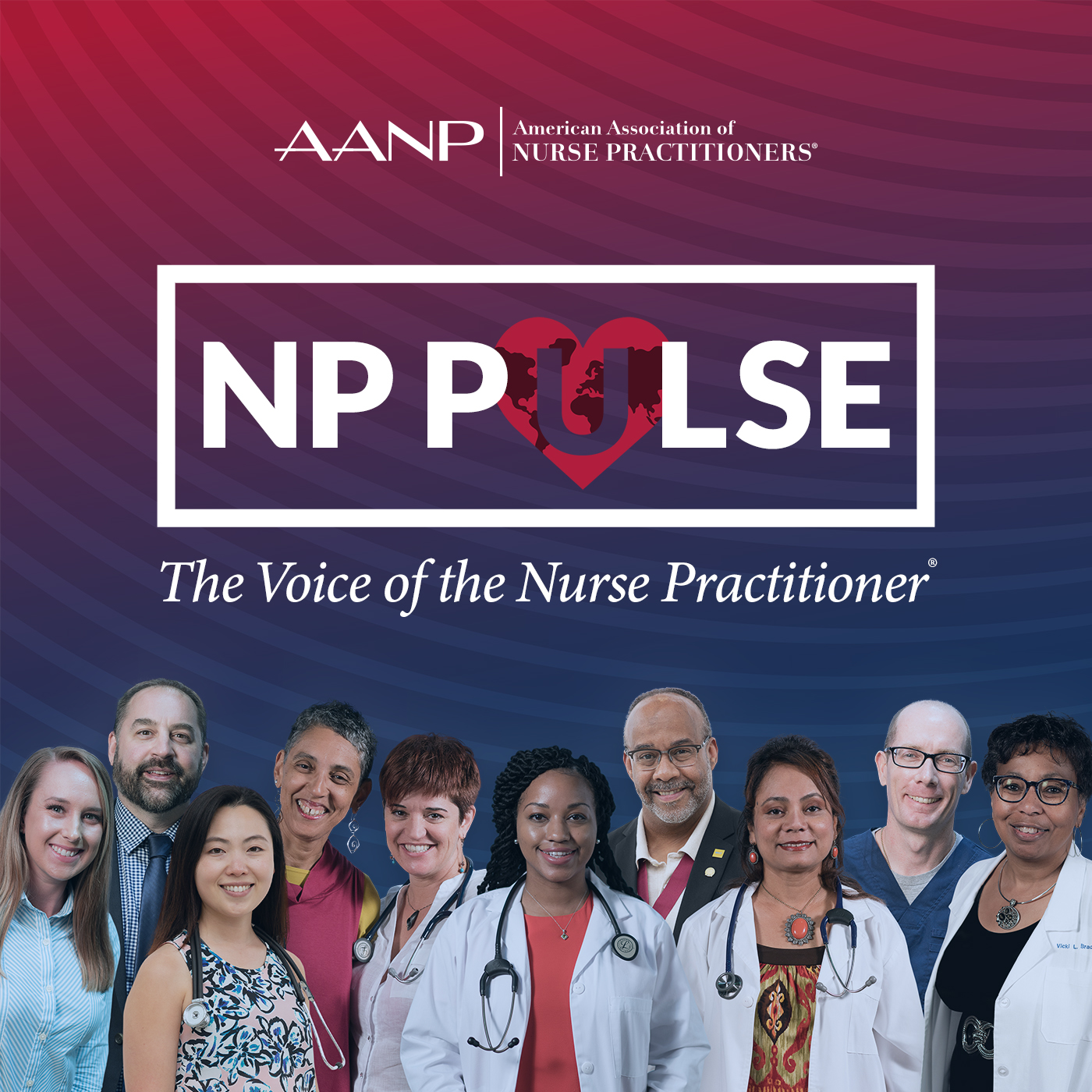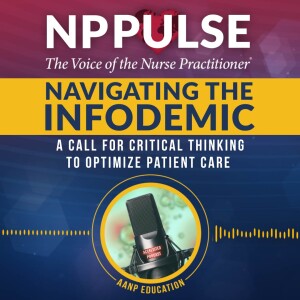
819.3K
Downloads
158
Episodes
The American Association of Nurse Practitioners® (AANP) brings you discussions around the most important topics and issues related to nurse practitioner (NP) practice, education, advocacy, research and leadership. Tune in each month for stories and in-depth conversations with NPs and health care leaders who you can’t hear anywhere else.
Episodes

Wednesday Apr 23, 2025
Wednesday Apr 23, 2025
In this second episode of a three-part series, Drs. Ruth Carrico and Paula Tucker explore the challenges of medical misinformation, its impact on patient care and strategies for navigating the overwhelming flow of health information in today’s digital age. The discussion covers the rise of the "infodemic” how misinformation spreads and how nurse practitioners (NPs) can critically evaluate medical literature to ensure evidence-based practice.
The hosts share real-world experiences from the COVID-19 pandemic, highlighting the difficulties of adapting to rapidly evolving guidelines while maintaining public trust. They also discuss the role of social determinants of health in the spread of misinformation and provide practical solutions for mitigating misinformation in clinical settings.
Key Takeaways:
Understanding the Infodemic:
- Definition: An overload of health-related information — both accurate and inaccurate — spread rapidly via social media, news and professional circles.
- Impact of COVID-19: Misinformation amplified due to evolving scientific knowledge, political influences and social media algorithms.
- Role of Trust: Public mistrust in health care institutions and shifting guidelines fueled skepticism.
Misinformation Drivers and Consequences:
- Psychological Factors: Cognitive biases (confirmation bias, authority bias) make individuals more susceptible to misinformation.
- Technology and Social Media: Algorithm-driven content creates echo chambers where misinformation spreads unchecked.
- Public Health Outcomes: Misinformation leads to vaccine hesitancy, delayed treatments and preventable deaths.
How NPs Can Combat Misinformation:
- 1. Active Listening: Understand patients' concerns before correcting misinformation.
- 2. Effective Communication: Use simple, culturally relevant messaging tailored to health literacy levels.
- 3. Building Resilience: Teach patients how to critically evaluate health information sources.
- 4. Community Engagement: Collaborate with local leaders and organizations to promote credible information.
Evaluating Evidence-Based Information:
- Use the CRAAP Test (Currency, Relevance, Authority, Accuracy, Purpose) to assess credibility.
- Trust peer-reviewed sources like CDC, WHO, FDA, Cochrane Reviews and PubMed.
- Be aware of misleading studies and cherry-picked data used to spread misinformation.
Trusted Resources for Patients and Providers:
- For Clinicians: UpToDate, DynaMed, BMJ Best Practice, Cochrane Reviews.
- For Patients: MedlinePlus, Mayo Clinic, CDC Vaccine Fact Sheets, American Heart Association.
To claim 1.1 contact hours (CH) of continuing education (CE) credit for this program, “Navigating the Infodemic: A Call for Critical Thinking to Optimize Patient Care,” search for this program by the title and complete the posttest and evaluation by entering the participation code provided after listening to the podcast. “This activity is sponsored by an independent medical education grant from Kenvue.”
Next Episode Preview:
In the final episode of this series, Drs. Carrico and Tucker will dive into practical strategies for debunking medical myths, patient-centered communication techniques and choosing the right battles when addressing misinformation.
📢 Stay connected! Subscribe to NP Pulse and follow AANP for more insights on evidence-based practice and professional development.

20 days ago
Honestly, there is so much data that COVID was a plandemic I would love to hear you apply this to psychosis, paranoia, alexithymia or agnosia. From a retospective view the FDA, CDC, WHO have lost credibility. Healthcare providers were linings because they would not get paid by the government if they didn’t support the unscientific information. This has hurt the trust of all healthcare providers individually and organizational.